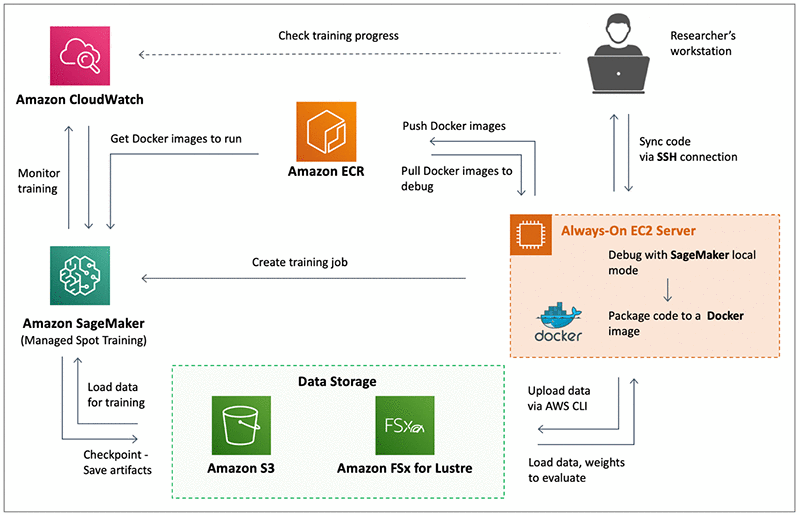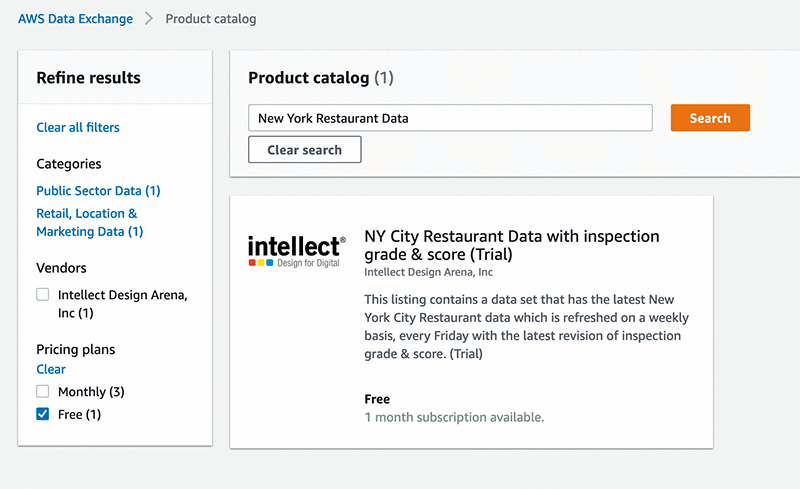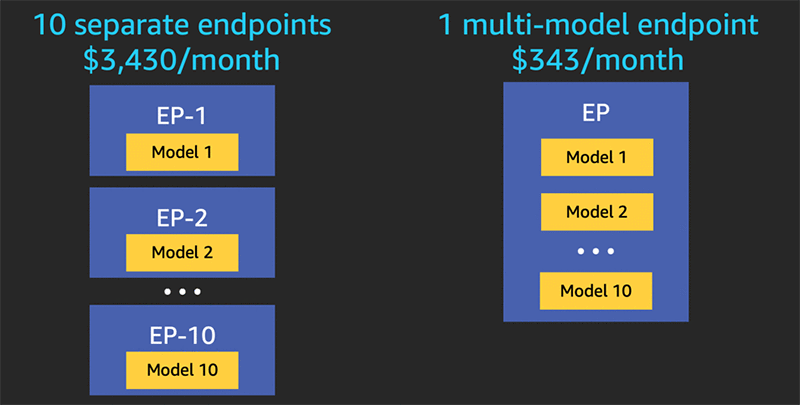Artificial Intelligence
Tag: Amazon SageMaker
Simplify Machine Learning Inference on Kubernetes with Amazon SageMaker Operators
Amazon SageMaker Operators for Kubernetes allows you to augment your existing Kubernetes cluster with SageMaker hosted endpoints. Machine learning inferencing requires investment to create a reliable and efficient service. For an XGBoost model, developers have to create an application, such as through Flask that will load the model and then run the endpoint, which requires […]
Lowering total cost of ownership for machine learning and increasing productivity with Amazon SageMaker
You have many choices for building, training, and deploying machine learning (ML) models. Weighing the financial considerations of different cloud solutions requires detailed analysis. You must consider the infrastructure, operational, and security costs for each step of the ML workflow, as well as the size and expertise of your data science teams. The Total Cost […]
Flagging suspicious healthcare claims with Amazon SageMaker
The National Health Care Anti-Fraud Association (NHCAA) estimates that healthcare fraud costs the nation approximately $68 billion annually—3% of the nation’s $2.26 trillion in healthcare spending. This is a conservative estimate; other estimates range as high as 10% of annual healthcare expenditure, or $230 billion. Healthcare fraud inevitably results in higher premiums and out-of-pocket expenses […]
Millennium Management: Secure machine learning using Amazon SageMaker
This is a guest post from Millennium Management. In their own words, “Millennium Management is a global investment management firm, established in 1989, with over 2,900 employees and $39.2 billion in assets under management as of August 2, 2019.” Millennium Management is comprised of a large number of specialized trading teams across the United States, […]
Cinnamon AI saves 70% on ML model training costs with Amazon SageMaker Managed Spot Training
Developers are constantly training and re-training machine learning (ML) models so they can continuously improve model predictions. Depending on the dataset size, model training jobs can take anywhere from a few minutes to multiple hours or days. ML development can be a complex, expensive, and iterative process. Being compute intensive, keeping compute costs low for […]
Building machine learning workflows with AWS Data Exchange and Amazon SageMaker
Thanks to cloud services such as Amazon SageMaker and AWS Data Exchange, machine learning (ML) is now easier than ever. This post explains how to build a model that predicts restaurant grades of NYC restaurants using AWS Data Exchange and Amazon SageMaker. We use a dataset of 23,372 restaurant inspection grades and scores from AWS […]
Running distributed TensorFlow training with Amazon SageMaker
TensorFlow is an open-source machine learning (ML) library widely used to develop heavy-weight deep neural networks (DNNs) that require distributed training using multiple GPUs across multiple hosts. Amazon SageMaker is a managed service that simplifies the ML workflow, starting with labeling data using active learning, hyperparameter tuning, distributed training of models, monitoring of training progression, […]
Introducing Amazon SageMaker Operators for Kubernetes
AWS is excited to introduce Amazon SageMaker Operators for Kubernetes in general availability. This new feature makes it easier for developers and data scientists that use Kubernetes to train, tune, and deploy machine learning (ML) models in Amazon SageMaker. You can install these operators on your Kubernetes cluster to create Amazon SageMaker jobs natively using […]
Save on inference costs by using Amazon SageMaker multi-model endpoints
Businesses are increasingly developing per-user machine learning (ML) models instead of cohort or segment-based models. They train anywhere from hundreds to hundreds of thousands of custom models based on individual user data. For example, a music streaming service trains custom models based on each listener’s music history to personalize music recommendations. A taxi service trains […]
Automating financial decision making with deep reinforcement learning
Machine learning (ML) is routinely used in every sector to make predictions. But beyond simple predictions, making decisions is more complicated because non-optimal short-term decisions are sometimes preferred or even necessary to enable long-term, strategic goals. Optimizing policies to make sequential decisions toward a long-term objective can be learned using a family of ML models […]








